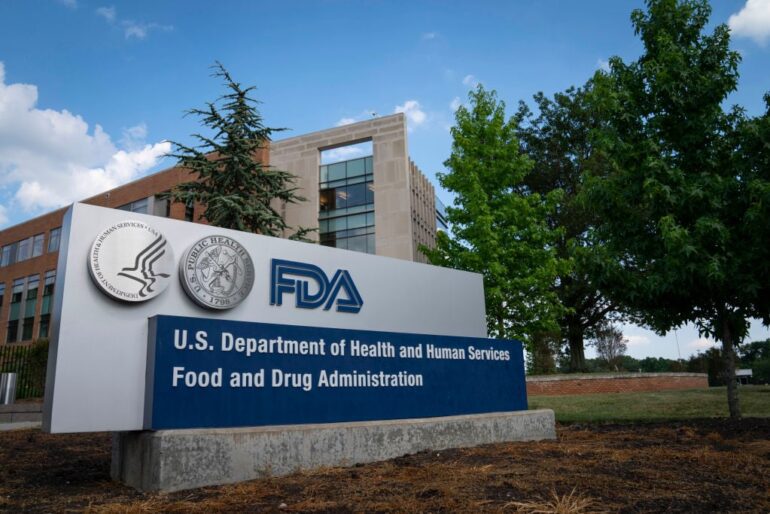TL;DR:
- FDA established a new advisory committee focused on digital health, including AI, therapeutic apps, wearables, and more.
- The committee aims to foster collaboration between the FDA and the healthcare industry to address major health challenges.
- It will provide guidance on cross-cutting technical and scientific issues and their impact on FDA policies.
- The FDA plans to release AI and machine learning-related guidance documents by year-end.
- Jeff Shuren, M.D., hints at changes in the agency’s advisory committee approach, emphasizing a nuanced perspective.
Main AI News:
FDA is gearing up to establish an advisory committee dedicated to digital health and artificial intelligence (AI). This initiative comes as the healthcare sector increasingly relies on AI and machine learning technologies to drive innovation. The FDA’s move reflects its commitment to engage with industry experts more closely in addressing pressing healthcare needs.
Scheduled to launch next year, the forthcoming advisory committee will not only encompass AI but also extend its purview to therapeutic apps, software applications, wearable devices, remote patient monitoring programs, and virtual/augmented reality tools. Troy Tazbaz, the director of the FDA’s Digital Health Center of Excellence, emphasized the importance of forging a collaborative relationship with the industry to address healthcare challenges effectively.
Tazbaz elaborated during an agency town hall at the AdvaMed MedTech Conference, stating, “In order to be able to do that, we have to start aligning. It can’t be an effectively transactional relationship, and opportunities like advisory communities provide that ongoing dialogue that’s needed to say, ‘What is our shared objective?‘”
The Digital Health Advisory Committee will join the FDA’s roster of other advisory panels, covering areas such as investigational cancer drugs and cutting-edge cell and gene therapies. While product-specific inquiries will continue within these dedicated forums, the new committee’s primary focus will involve providing guidance to the FDA on cross-cutting technical and scientific matters. This guidance will also explore potential interactions with the agency’s policies and regulatory proposals, with the aim of avoiding unintended consequences.
Tazbaz emphasized the significance of practical guidance, stating, “If you write a guidance that the industry doesn’t know what to do with, it’s just a piece of paper at that point.”
The FDA’s commitment to digital health dates back to late 2020 when it launched the Digital Health Center of Excellence. This center serves as a hub for oversight within the Center for Devices and Radiological Health (CDRH) while offering valuable subject matter expertise to the entire agency. Furthermore, the FDA has streamlined its internal health IT, data management, and cybersecurity efforts under a single Office of Digital Transformation.
Notably, the Digital Health Advisory Committee will not be confined to the FDA’s device-focused center; its scope will extend across the agency, encompassing broader issues such as decentralized clinical trial designs, patient-generated health data, and product cybersecurity. The committee is set to consist of nine core members, with additional temporary, specialized members joining on a topic-specific basis. The FDA is currently in the process of soliciting nominations for panelists, with plans to convene its inaugural meeting in 2024.
Before the committee’s launch, the FDA intends to release new guidance documents pertaining to AI and machine learning-enabled products by the end of the current year. These documents will include the finalization of guidance on change control plans and new draft guidances on premarket submission recommendations for AI services, as well as considerations for product lifecycle management.
In discussing the evolving landscape of advisory committees, Jeff Shuren, M.D., director of the FDA’s device center, noted a shift in the agency’s approach. He remarked, “The agency is, I think, moving away from the mindset of even holding a vote on a product,” highlighting the agency’s focus on targeted questions and feedback to inform regulatory decisions. This shift toward a more nuanced approach is indicative of the FDA’s commitment to integrating the individual perspectives of committee members into its decision-making process across various medical product domains.
Conclusion:
The FDA’s creation of the Digital Health Advisory Committee signifies a strategic move to deepen its engagement with the digital health and AI sector. This initiative reflects the FDA’s commitment to fostering collaboration with industry experts and addressing healthcare challenges more effectively. As the FDA refines its guidance and advisory committee operations, it demonstrates a proactive approach to regulating emerging technologies in the healthcare market, fostering innovation while ensuring patient safety. Market players should take note of these developments and prepare for potential regulatory shifts and opportunities in the digital health space.

